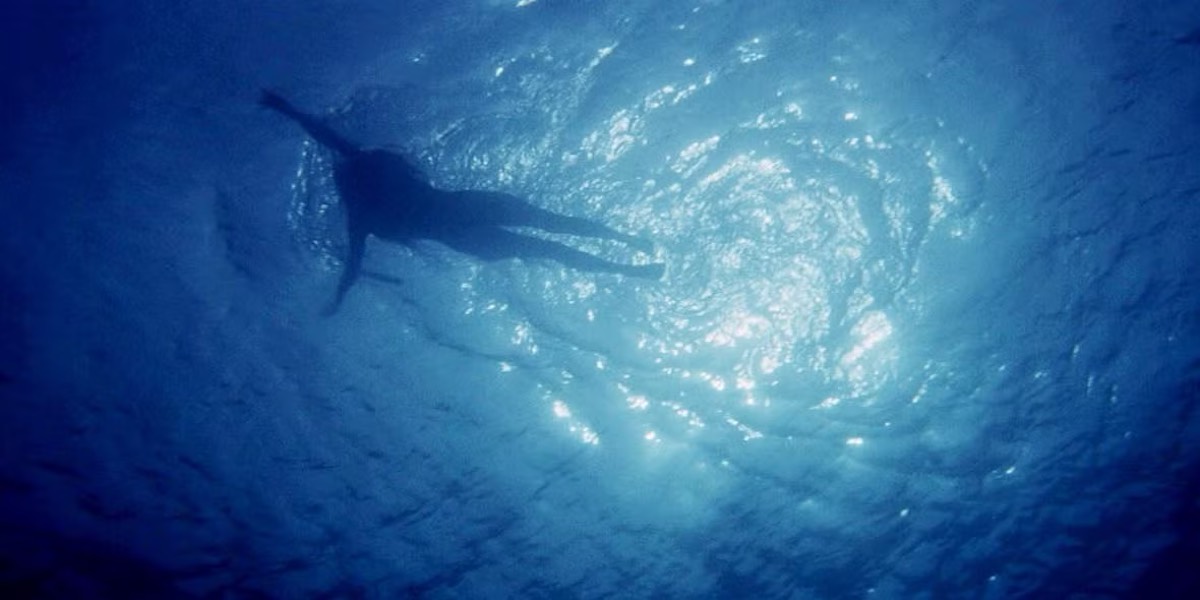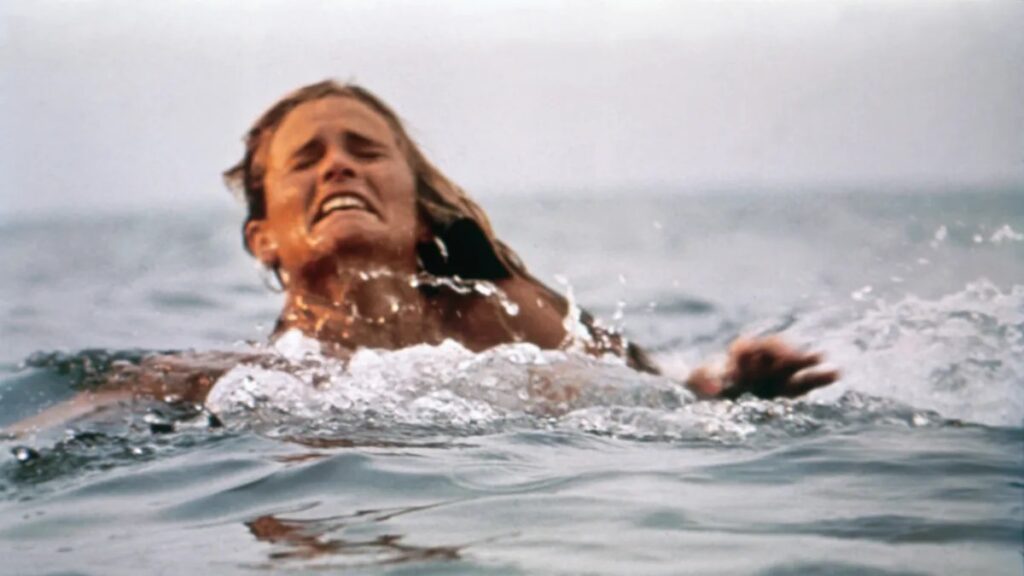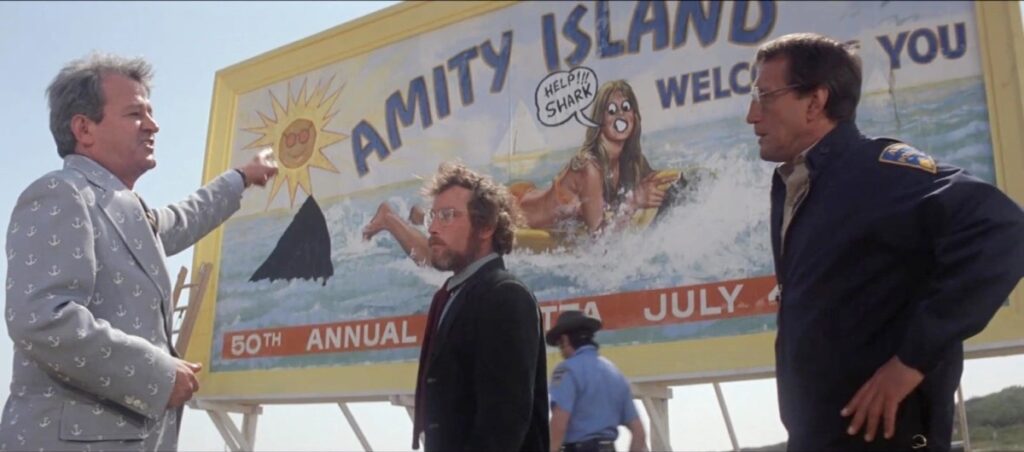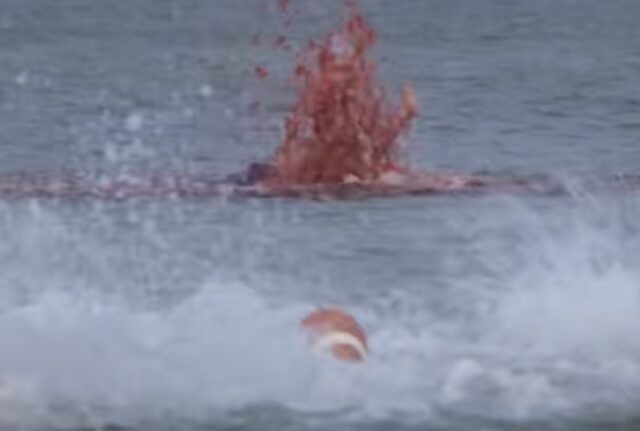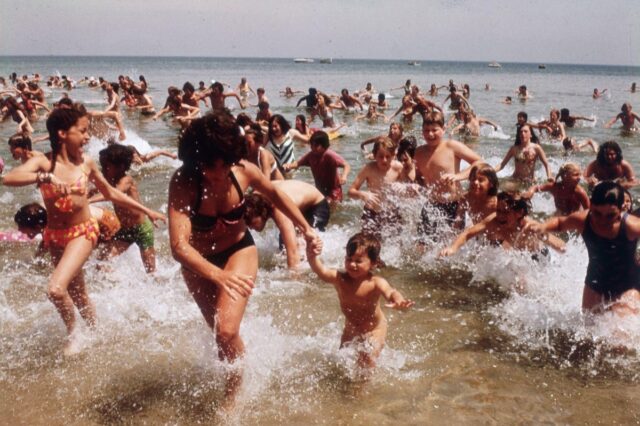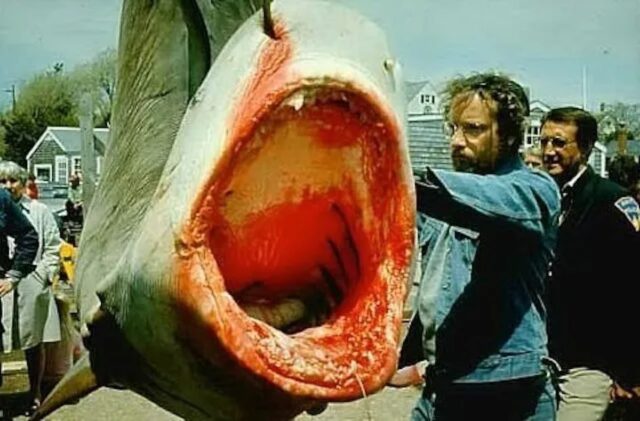A shark strikes
RIP Chrissie Watkins (Susan Backlinie), the shark’s first victim.
Universal Pictures
RIP Chrissie Watkins (Susan Backlinie), the shark’s first victim.
Universal Pictures
Local vandals have a bit of fun with the Amity billboard.
Universal Pictures
There were three pneumatically powered full-sized mechanical sharks built for the shoot, nicknamed “Bruce,” and they kept malfunctioning. The pneumatic hoses kept taking on seawater; the skin was made of neoprene foam, which soaked up water and became bloated; and one of the models kept getting tangled up in seaweed. In the end, Spielberg opted to shoot most of the early scenes without ever showing the actual shark, which actually heightened the tension and suspense, especially when combined with John Williams’ ominous theme music (“duh-duh-duh-duh-duh-duh…”).
In the end, shooting ran for 159 days, and the budget ballooned to $9 million. All the delays gave Spielberg and his writers (especially Gottlieb) extra time to refine the script, often just prior to filming the scenes. A lot of the dialogue was improvised by the actors. And it was all worth it in the end, because Jaws went on to become a major summer box office success. All told, it grossed $476 million globally across all its theatrical releases and won three Oscars, although it lost Best Picture to One Flew Over the Cuckoo’s Nest.
Jaws inspired many, many subsequent films, including Ridley Scott’s Alien in 1979, described in pitch meetings as “Jaws in space. Audience reactions were often extreme, with many people becoming fearful of swimming in the ocean for fear of sharks. And while the sequels were, shall we say, underwhelming, the original Jaws has stood the test of time. Ars spoke with marine biologist and shark conservationist David Shiffman, author of Why Sharks Matter, to discuss the film’s depiction of sharks and its enduring place in popular culture.
Ars Technica: Let’s start by talking about the enormous impact of the film, both good and bad, on the general public’s awareness of sharks.
David Shiffman: A lot of folks in both the marine science world and the ocean conservation communities have reported that Jaws in a lot of ways changed our world. It’s not that people used to think that sharks were cute, cuddly, adorable animals, and then after Jaws, they thought that they were bloodthirsty killing machines. They just weren’t on people’s minds. Fishermen knew about them, surfers thought about them, but that was about it. Most people who went to the beach didn’t pay much mind to what could be there. Jaws absolutely shattered that. My parents both reported that the summer that Jaws came out, they were afraid to go swimming in their community swimming pools.
Source link
#shark #scientist #reflects #Jaws




















